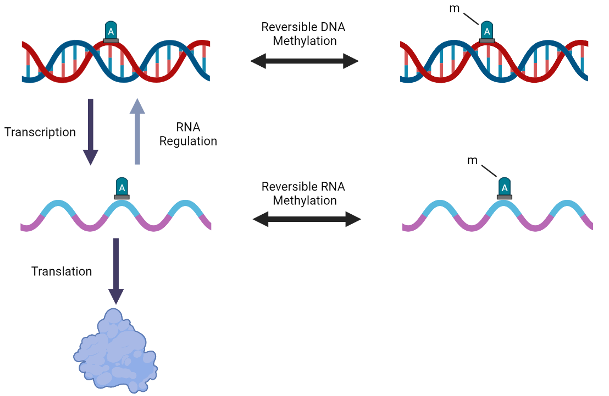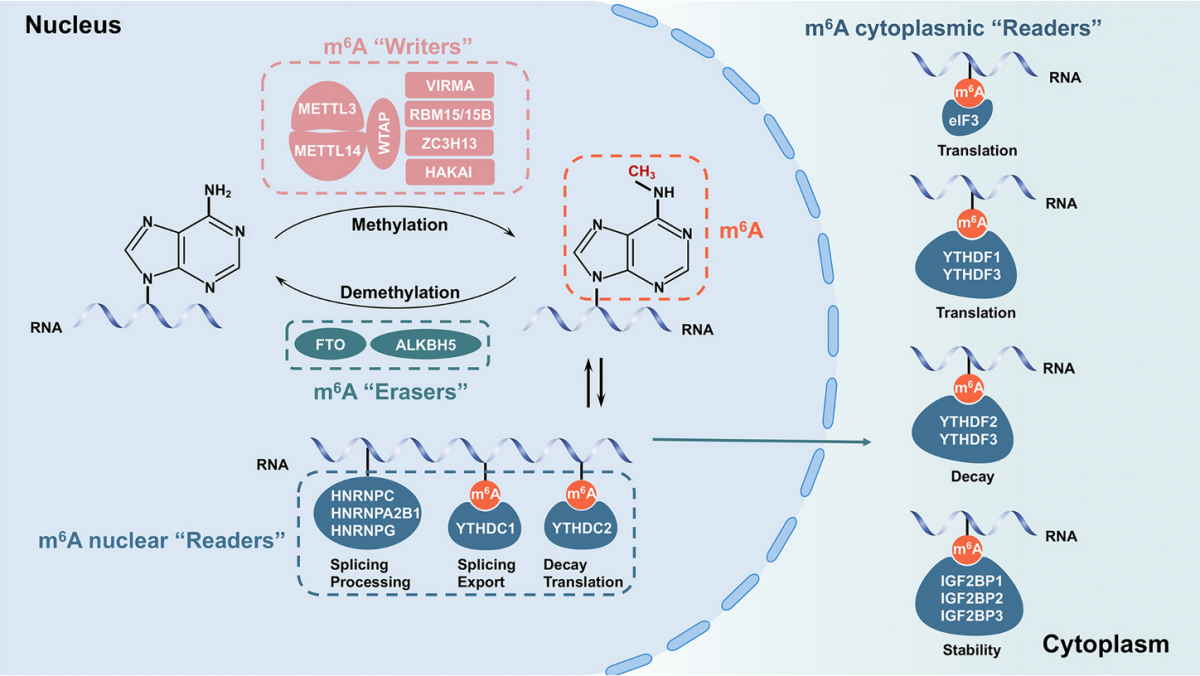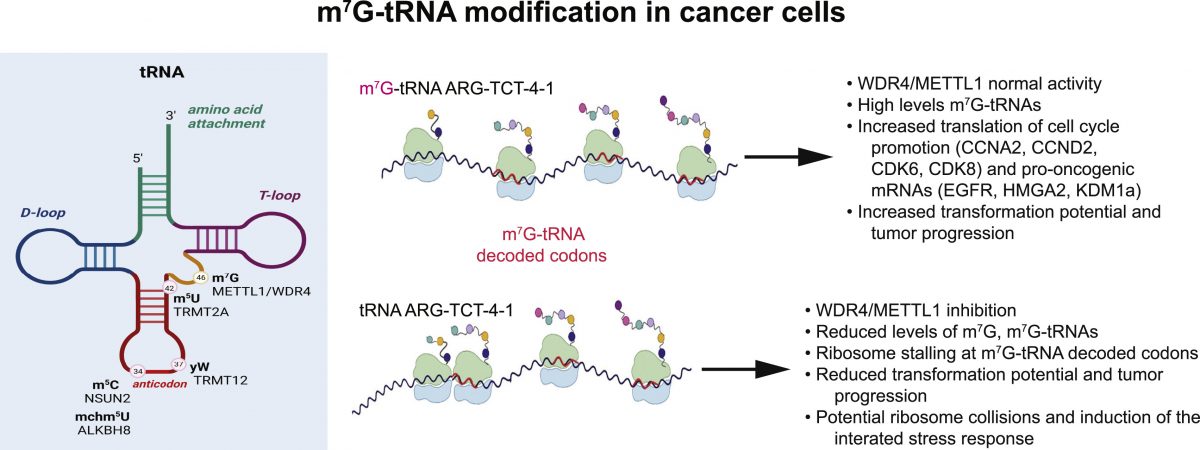Regulation of RNA Modification
Epitranscriptomics, the field of post-translational RNA modifications, is a burgeoning domain of research that has recently received significant attention for its role in multiple diseases, including cancer. Post-translational RNA modifications, specifically RNA methylation, have been shown to play a critical role in RNA transcription, processing, translation, and metabolism. Multiple sites of RNA methylation have been investigated for their functional effects on cell viability, however the mechanisms through which the process of RNA modification occurs need to be further investigated to explore the potential for small molecule regulators as potential anti-cancer agents.

The most common internal RNA modification is N6-methyladenosine (m6A), which is methylation at the N6-position of adenosine. The m6A modification is controlled by three protein classes known as writers (methyltransferases), erasers (demethylases), and readers (m6A-binding proteins). Each class of m6A regulatory proteins has been implicated in cancer initiation and progression. As such, many of these proteins have been identified as potential targets for anti-cancer chemotherapeutics.

Modification of N7-methylguanosine (m7G) is another common post-transcriptional RNA methylation event. METTL1 is an RNA m7G methyltransferase that complexes with WDR4, an essential protein cofactor of METTL1, to catalyze the methylation reaction of RNA m7G on tRNA. This methylation event has been found to increase rates of cancer as methylated m7G tRNA allows for greater efficiency in mRNA translation, leading to greater incidences of oncogenic RNA processing.
